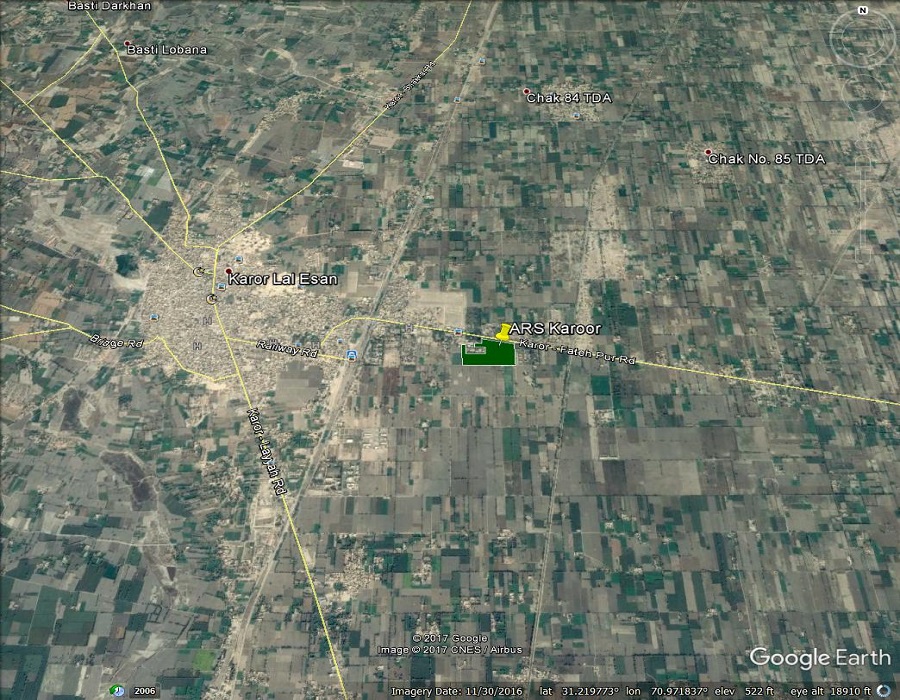Agronomic research station, Karor Lal Eason, district Layyah is situated in hot dry region of the Punjab, namely “Thal” and it was surrounded by four districts i,e. Jhang, Muzaffargarh, D.G.Khan and Bhakkar. Total reported area of the district Layyah is 1,652,638 Acres. Cotton-wheat is the prominent crop rotation of irrigated areas while chickpea in arid conditions in the district. Sugarcane, millet, mungbean and oil seed crops are also introducing in the existing cropping systems. Moreover plantation of citrus orchard is an emerging trend of this zone. The soils of area vary from sandy to sandy loam and clay loam soils. The canal irrigation system and underground water meet the need of crops in the district and fit for irrigation purpose. It was established under the project “Strengthening of Agronomic Research in the Punjab – Agronomic Research Institute” during the year, 1984-85.
Mission
To develop site specific production technology of different agronomic aspects for field crops of irrigated and rainfed areas of Thal with view to minimize the farmer’s problems and enhanced per acre yield of the area adopting different management strategies with minimum cost of production.
Objectives
- To study the impact of climate change on crops and development of adaptation strategies to combat climate change
- To work out the consumptive use of water by various crops
- To study the irrigation requirements and irrigation schedules of different crops
- To study the interaction of various inputs
- To find out the appropriate soil and water management practices under different soil and climatic conditions
- To study the effect of level of sub-soil water in the irrigation requirement of different crops
- To work out the economics of cultivations of different crops under changing cropping pattern
- To standardize the economical and the most suitable cropping pattern under varied soil and climatic conditions
- To study the feasibility of introduction of various new crops under varied ecological zones.
- To conduct experiments on diversified and mixed cropping.
- To conduct experiments on planting time and planting method of various crops.
- To find out the best spacing pattern in different crops for maximum production.
- To conduct experiments on relay cropping for maximum return per unit area.
- To work out effect of various cultural practices and mulch applications in economizing the water requirements of crops.
- To standardize the cultural practices for the effective control of various insects and diseases.
- Studies on the rooting habits of various crop plants so as to determine their water and soil requirements.
- To determine the optimum conditions for the germination of various crop seeds, with special reference to soil moisture, depth of dibbling and type of the soil.
- Studies on weed control (weed flora, biology and their control).
Research Activities
- Effect of sowing dates on yield of sesame varieties under thal irrigated conditions
- Effect of sowing methods and sowing dates on water use efficiency of cotton
- Economic efficiency of different cropping systems for small farmer’s of thal irrigated area.
- Screening of new strains/varieties of mungbean under thal irrigated conditions.
- Enhancing wheat yield under heat stress by foliar application of selenium.
- Effect of different sowing dates on new wheat genotypes of wheat under normal and late sowing.
- Effect of different seed rates on new genotypes of wheat under thal irrigated conditions.
- Yield performance of chickpea strains/varieties of under thal irrigated conditions.
- Yield performance of mustard/Rapeseed strains under thal irrigated conditions.
- Effect of date of sowing and seed rate of Ajwain trial.
Contact Us

